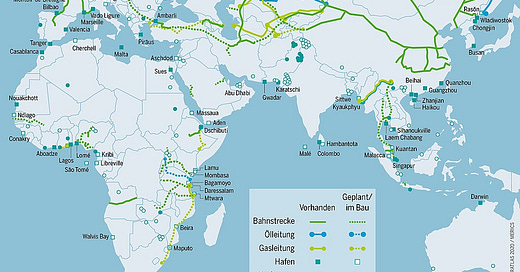Xi Jinping’s Flagship Project, the BRI Is Proving to Be a Financial Sinkhole for Emerging Countries.
However, the CCP has no intention of stopping this project, which should enable it to extend its domination over the world.
In January 2022, China's foreign minister chose Kenya for his first foreign trip of the year. In this stronghold of “Chinafrica,” Wang Yi announced the appointment of a special envoy to oversee peace talks in the Horn of Africa (even as China is accused of selling arms to Ethiopia). But his visit was also aimed at reviving the Belt and Road Initiative (…
Keep reading with a 7-day free trial
Subscribe to Sylvain Saurel’s Newsletter to keep reading this post and get 7 days of free access to the full post archives.




